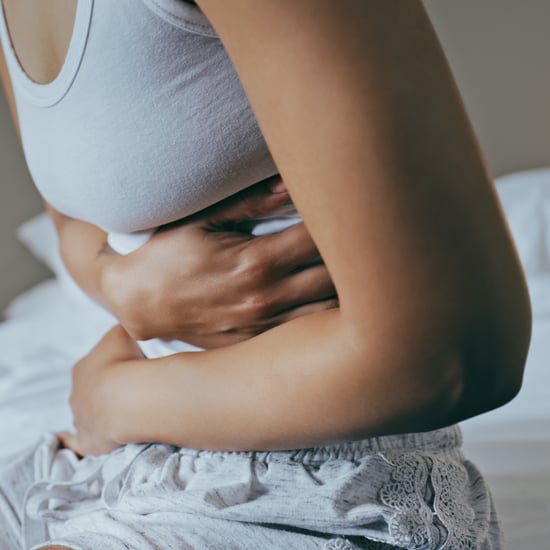Is Intermittent Fasting Safe During Pregnancy?
This Trendy Diet Plan May Not Be a Good Idea If You're Expecting

You might have been a strict follower of intermittent fasting, but if you recently found out you're expecting a little one, it's time to change your eating plan back to a more regular schedule.
Intermittent fasting's shortened eating window (which usually means skipping breakfast and not eating after dinner) can stimulate weight loss and heal metabolic damage without counting a single calorie. In fact, according to Dr. Luiza Petre, a board certified cardiologist and nutrition and weight-loss specialist, current studies show that an intermittent fasting diet "plays a role in cellular adaptation, curbs inflammation, optimises energy metabolism, and boosts cellular protection." But we don't think we have to tell you that if you're pregnant, weight loss is not something you want and the risks far outweigh the possible benefits.
"Most medical providers feel research is very inconclusive on fasting during pregnancy and should be avoided," warns Petre, mentioning concerns about following this type of diet during pregnancy are due to the lengthy gaps between meals. This is especially true if you are already experiencing morning sickness and the only thing that makes you feel like you can hold it together long enough to get ready for work is eating a few crackers or a granola bar in the morning.
A few small studies have been done on women fasting for religious practices like Ramadan. In one, some participants showed no adverse effects, while others displayed significant concerns, such as low birth weight. "There is no health stamp that can be assigned to any diet during pregnancy because most diets are unethical to perform on pregnant women [for study purposes]," Petre adds.
Dr. Christopher Grady, an OB-GYN in Jeffersonville, IN, gives similar advice. "The problem with dieting (with the exception of a gestational diabetes diet) is that the proper amount of calories, protein, carbohydrates, and even fats may not be taken in." Instead of trying to stick to your prepregnancy diet, Dr. Grady instead recommends that women err on the side of caution and follow a healthy, balanced diet during pregnancy. His advice for a safe pregnancy involves speaking with your practitioner for personalised guidelines on which foods to eat and how much, avoiding foods high in mercury (like tuna), and not getting too hung up on weight gain. "The average weight gain in pregnancy is 25 to 40 pounds," he says, and the best way to get there is with a variety of healthy, whole foods, like those listed below.
- Eat high-fibre foods like whole grains, seeds, fruits, and veggies to feel satiated and prevent constipation.
- Avoid refined and sugary foods that will cause a rapid rise in blood-sugar levels.
- Get plenty of protein from beans, nuts, and well-cooked meat and eggs.
- Drink about 64 ounces of water daily to stay hydrated.
- Consume an extra 300 to 500 calories per day in the second and third trimesters (as advised by your medical provider).
The most important thing to keep in mind? "Always listen to your body during pregnancy and speak with your provider before making any changes to your diet," Dr. Grady says. Eat when you are hungry, rest when you are tired, and, hey, if you are dead set on trying intermittent fasting, wait until after pregnancy and breastfeeding.






